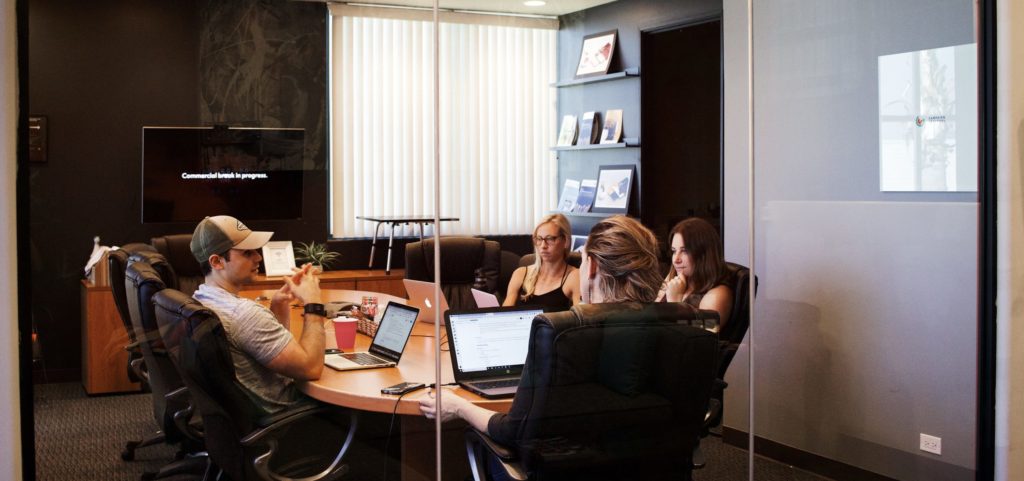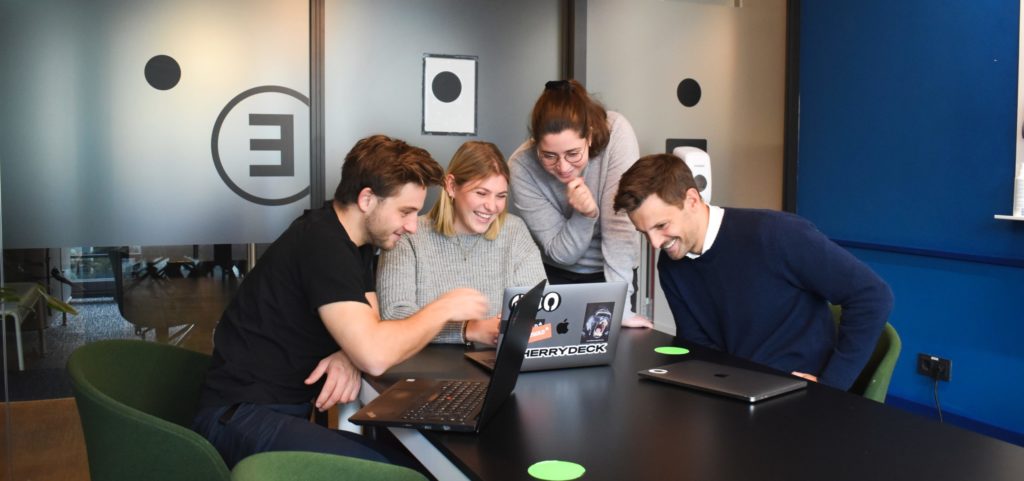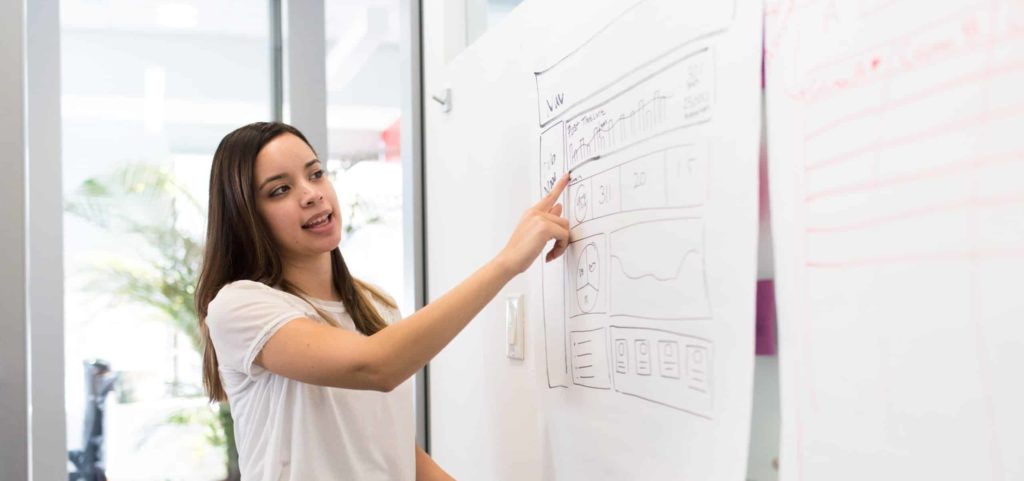In today’s world, students face endless distractions and ever-evolving choices. Information bombards them from every direction—be it the news, social media, or their family and friends.
It’s no longer enough to deliver lectures, exams, and assignments and expect students to remain engaged!
Educators must embrace new approaches, such as action learning, to keep students motivated and prepare them for the future of work.
In this article, you’ll learn about what action learning is, how it works, and how you can use the transformative approach to improve outcomes and develop leadership skills in your classroom.
What is action learning?
Action learning is a form of active, project-based learning where learners apply knowledge to solve real-world problems.
Among other benefits, action learning helps students develop core skills and competencies by working on projects relevant to their future goals. Over a project’s course, students learn through investigation, self-reflection, and feedback.
Typically, action learning works best with small groups, allowing members to share skills and make equal contributions. It will include the following elements:
- Planning (i.e. what are our goals and how do we plan to achieve them?)
- Acting (i.e. carrying out plans and actions)
- Reflecting (i.e. what went well, what didn’t, and how we feel about the project?)
- Learning (i.e. why did the project succeed/not succeed, and what can we change or improve upon next time?)
This process helps participants think critically about their actions and identify which steps helped them achieve their goals. It follows the idea that many students perform better and are more engaged with class content when ‘learning by doing’.
Types of action learning
There are always ways to apply action learning techniques in the classroom, regardless of the subject you teach. The approach is beneficial for students learning everything, from hospitality skills to computer science!
Some popular types of action learning projects include:
- Action research, an applied field involving learners in generating and collecting data to solve a problem or answer a question.
- Action teaching, where learners develop, design, and implement instructional units for students and assess their effects on learning outcomes.
- Problem-based action learning (PBL), which focuses on solving problems relevant to the learner’s work environment, personal life, and goals. It includes deep reflection and critical thinking about the problem-solving process itself.
Each type of action learning has a similar goal—to actively immerse students in the learning process, leading to higher engagement, stronger retention, and an overall enhanced experience for educators and students alike.
Action learning is also a valuable way to build hard and soft skills in your students, including those essential for leadership, such as conflict resolution, strategic thinking, and open communication.
Role of a facilitator
In action learning, the facilitator— often the teacher—has the essential role of ‘holding the process’. In other words, they must ensure the project’s course focuses on real issues and genuine learning.
A good action learning facilitator will hold several core skills and competencies, including:
- Strong interpersonal or ‘people’ skills
- Good teamwork skills
- Communication and collaboration skills
- The ability to give constructive feedback
- Supportive and encouraging people management skills
- Being a positive role model
As a facilitator in your classroom, your actions may include leading class discussions, asking driving questions, and encouraging students to share thoughts and ideas.
What are the components of an action learning project?
Now, let’s discuss some key components of action learning projects and how they apply to higher education.
Remember—these components don’t have to happen in any particular order. Teams will move in and out of each component as they work through a project, sometimes returning to a single component several times.
Problem
All action learning begins with a problem. The problem should be timely, important, and relevant to the team’s interests and goals.
For example, political science students may identify a pressing societal or business issue, such as a law they’d like to change or a local injustice. Whichever problem students choose, it should be something they feel passionate about and inspired to solve.
Action learning team
Action learning teams normally consist of four to eight people. The smaller the group, the more chance each person has to make an equal contribution—although you don’t want to go too small.
Ideally, teams should be large enough to include people from diverse backgrounds but small enough to make communication and teamwork easy.

Questioning & reflection
Reflection is a critical part of action learning. It enables learners to look back on their experience, identifying what went well and what didn’t. This process helps students learn from their mistakes, develop new skills, and gain critical insights into their weaknesses and strengths.
Action taken
This component involves teams taking action to solve the chosen problem. Team members should do more than brainstorm potential solutions or make suggestions; action should have a genuine impact.
For example, the politician science students mentioned above could take action by writing to their local political authority or gathering signatures on a petition.
Commitment to learning
Students must be committed to the learning process to achieve optimal outcomes. Thankfully, a learner-centred approach increases engagement, enthusiasm, and commitment.
The benefits of action learning projects in higher education
Action learning offers a broad range of benefits to students and educators in higher education, including:
- Better retention rates
- Improved learning outcomes
- More diverse opportunities
- Stronger connections with peers, leaders, and communities
- Enhanced engagement and motivation
It’s also a fantastic way to build 21st-century skills (like critical thinking, creativity, and technological literacy) in your students, preparing them for career success after graduation.
How action learning can help develop future leaders
Action learning is a powerful technique for building leadership skills in your students.
When your students apply their knowledge to real-world contexts, they develop various skills critical to modern leadership, including problem-solving, decision-making, and collaboration.
This type of learning also encourages students to self-reflect and build self awareness—something future leaders must constantly do.
How Practera’s project-based learning services can help
Practera’s project-based learning programs can help you deliver revolutionary active learning experiences in your classroom.
Practera helps educators build professional skills, experiences & connections for their students through authentic project-based learning. We help leading institutions around the world deliver high-quality industry projects at scale & cost-effectively.
We have helped hundreds of universities and educators globally and empowered almost 1 million learners with industry-recognised career skills through our services and high-quality active learning authentic industry experiences and programs.
Using our platform, you can also access essential tools to streamline the delivery process, including pre-built templates, a detailed analytics dashboard, and a powerful AI-based support assistant.
To learn more about our services and how Practera can enhance learning outcomes in your classroom and build future leaders, connect with our team for a discussion or download our project-based learning white paper today. You can also trial our industry experience program for free for a short time here.



